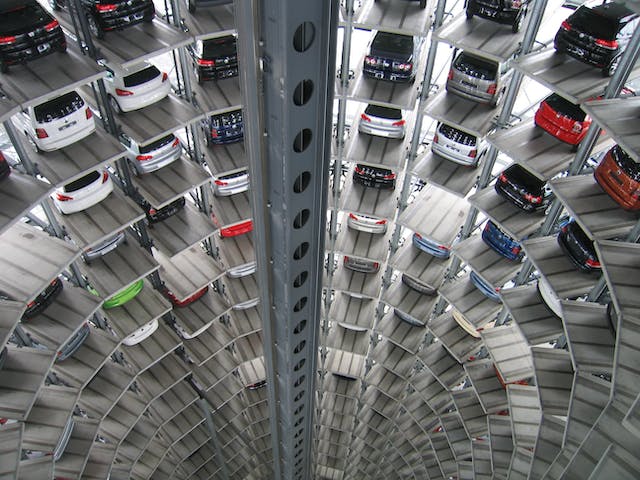Nov06

In the dynamic realm of automotive technology, innovation remains a potent driving force, reshaping our interactions and experiences with vehicles. From the advent of electric and autonomous vehicles to the integration of cutting-edge materials and components, the automotive industry is in the midst of a significant transformation.
However, the successful realization of these innovations hinges on the strength of the supply for vehicles and parts – a dependable source for which is available at https://sts-global.com/.
One of the most substantial shifts in the automotive sector is the burgeoning prominence of electric vehicles (EVs). These eco-conscious alternatives to conventional gasoline-powered cars incorporate state-of-the-art battery technology and have made remarkable strides in recent years. Electric vehicles not only curtail our carbon footprint but also offer a smoother and quieter driving experience.
The global demand for electric vehicles is steadily on the rise, necessitating efficient supply chains to meet this surging demand. This calls for not only the manufacturing and distribution of electric vehicles but also their specialized components, such as lithium-ion batteries.
The reliability and sustainability of these component supplies are paramount in facilitating the ongoing transition to electric mobility.
Another groundbreaking stride involves the development of autonomous vehicles. These vehicles are equipped with advanced sensors, cameras, and artificial intelligence, empowering them to navigate roads with heightened safety and efficiency.
Self-driving cars hold the potential to reduce accidents attributable to human error and offer enhanced mobility to individuals who cannot drive.
Simultaneously, connected vehicles are becoming increasingly prevalent. These vehicles boast wireless technology, facilitating real-time communication between vehicles and infrastructure. This connectivity fortifies safety and streamlines traffic management, allowing vehicles to exchange data, anticipate potential hazards, and prevent accidents.
As these technologies advance, the supply chain for autonomous and connected vehicles becomes more intricate. The efficient production of sophisticated sensors, cameras, and AI components is indispensable to ensure a seamless flow of innovations into the market.
In addition to electric vehicles, the automotive industry places substantial emphasis on eco-friendly materials and sustainable manufacturing processes.
The incorporation of lighter and stronger materials, such as carbon fiber and aluminum, is reducing vehicle weight, thereby enhancing fuel efficiency and decreasing emissions. These materials not only align with sustainability objectives but also bolster vehicle safety.
The drive for sustainability is instigating transformations within the vehicle manufacturing supply.
Manufacturers are actively seeking eco-friendly sourcing of materials and embracing more resource-efficient production methods, ultimately reducing their environmental footprint. The automotive supply is evolving to align with these green initiatives, thereby establishing sustainable material sourcing and efficient vehicle production as industry standards.
Preserving the quality and integrity of vehicles, regardless of whether they are electric, autonomous, or traditionally powered, is of paramount importance. The utilization of genuine parts in vehicle maintenance and repairs is a linchpin in ensuring their longevity and performance. Genuine parts are meticulously engineered to conform to the manufacturer's precise specifications, thereby preserving the safety and reliability of the vehicle.
The demand for genuine parts and components is intrinsically tied to the continuous innovation within the automotive industry. As vehicles grow increasingly intricate, intertwined with advanced technologies, the necessity for high-quality, genuine replacement parts becomes even more pronounced.
The ongoing innovation within the automotive sector and the mounting demand for electric vehicles, autonomous cars, and sustainable materials underscore the critical importance of a resilient supply chain.
The reliable supply must exhibit the agility to adapt to the shifting industry landscape, guaranteeing efficient delivery of innovations to the market while upholding the dependability of vehicle maintenance.
Innovations in car technology have left an indelible mark on the automotive industry, propelling its continuous evolution. Whether through the transition to electric vehicles, the advent of autonomous driving, or the embrace of sustainable materials, the industry continues to undergo a profound metamorphosis.
These innovations stand shoulder to shoulder with a robust and adaptive supply, one that caters to the production, distribution, and maintenance of vehicles and components.
As the automotive sector continues its journey of innovation, the role of the procurement support in facilitating these advancements becomes ever more central. It is through the collective efforts of manufacturers, suppliers, and service providers that we can assure the future of the automotive industry is characterized by sustainability, efficiency, and cutting-edge technology.
Keywords: Autonomous Vehicles
 Lateral Moves: The Most Overlooked Succession Strategy in Companies
Lateral Moves: The Most Overlooked Succession Strategy in Companies The Asset Play: Timing, Structure & Global Arbitrage
The Asset Play: Timing, Structure & Global Arbitrage  The Orchestra Needs a Conductor: Why Multi-Model Agents Require H2E Governance
The Orchestra Needs a Conductor: Why Multi-Model Agents Require H2E Governance The Role of Memory in Modern-day Business
The Role of Memory in Modern-day Business The Architectures of Permanence: A Comparative Analysis of the "Big Three" AI Strategies (2026)
The Architectures of Permanence: A Comparative Analysis of the "Big Three" AI Strategies (2026)